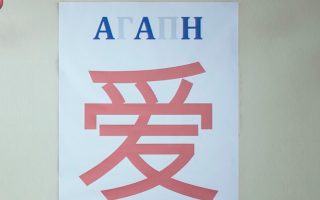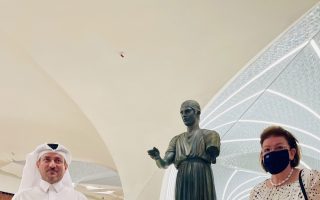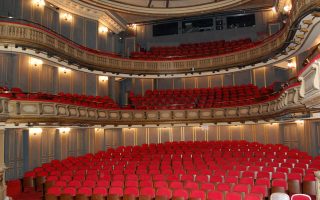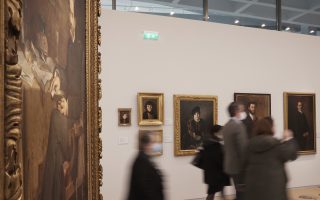Ambassadors of friendship between Greece and Germany
An institute headquartered in Thessaloniki and Leipzig is attempting to allow young people to share their experiences
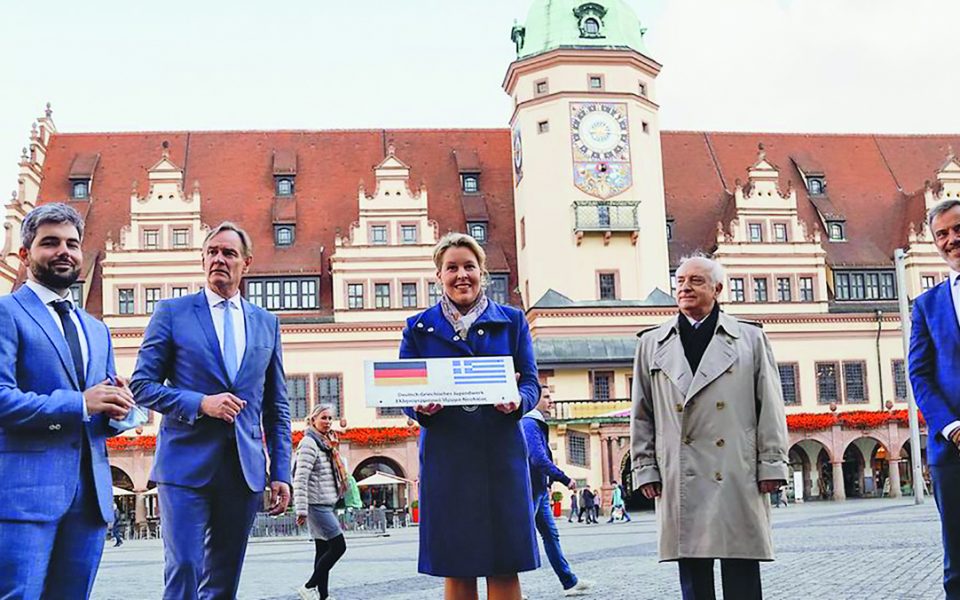
It was October 2015 when a group of Greeks – academics, students and members of educational organizations – arrived at the German-Polish border. There, in the village of Krzyzowa, part of Poland since 1945, they would spend a week with people from Poland and Germany, in an effort to rediscover history in the framework of an exchange program organized by, among others, the German-Polish Youth Office.
The choice of the Polish village, with a population of around 200 inhabitants and approximately 60 kilometers from the German border, was deliberate. Krzyzowa is noted due to its connection to the Kreisauer Kreis (the Kreisau Circle), the name given by the Gestapo to a group of German dissidents, including aristocrats, intellectuals and socialists, who had organized a resistance group against Hitler’s Nazi regime. The group’s ambitious plans for the future, which envisioned post-war cooperation between the European states, met with a brutal end and its inner circle was executed in 1945.
These events of World War II are shared with visitors in the open-air exhibits set up across the village. In fact, the legendary Kreisau Manor, belonging to the noble von Moltke family whose scion led the resistance group, still stands, ready to welcome Germans and Poles (the manor also hosted a meeting between Helmut Kohl and Tadeusz Mazowiecki in 1989).
In this historic venue, the participants were called upon to discuss the collective and individual past, applying the principles of Histoire Croisee and utilizing contemporary educational tools, like role playing. “The purpose of all these events was for the Pole to become German and the other way around,” Akrivi Anagnostaki, an English teacher and member of the educational organization EDRASE who traveled to Poland in 2015, explains to Kathimerini.
The educational activities in which teams from Greece, Germany and Poland took part included moments of creativity and compassion, but also awkwardness. Members of the participating teams had families that had been forcibly moved from either or both sides of the border.
“I will never forget two people, Nicholas, a German, who feeling so guilty for his country’s Nazi past had completed a personal pilgrimage to all the Greek villages destroyed by the Germans, and Yolanda, incredibly active, who after the announcement of the results of the Polish election (when the Law and Justice Party won) did not stop crying all night.”
The focus of the teams might have been the past, but that did not stop them from discussing the contemporary political landscape. “We wanted to know about the situation in Poland, while the others asked us about the referendum and the Greek financial crisis,” remembers Anagnostaki.
In 2015, at a time when Greek and German relations were at a low, the proposal to establish a Greek-German Youth Institute had already been put forward by the German side, hoping it could help smooth over the fraught relations, as had been done with similar youth institutes in Poland and France. The Greek side accepted the proposal, but Greek public discourse created a cautious atmosphere, which led to many setbacks and delays in setting up the institute. This is the reason why Greeks could only participate as “guests” in many similar initiatives.
The beginning
Against the prevailing attitudes, on April 1 a Greek-German Youth Institute headquartered in Thessaloniki and Leipzig launched its operations, and it was not an April Fool’s Day prank.
“We receive many queries from interested parties, some who have already begun collaborations in Germany and others who seek to find partners through us,” Maria Sarigiannidou, general secretary of the Thessaloniki Institute, told Kathimerini. “Third countries can also participate in the program.”
The 33-year-old lawyer, a graduate of the German High School of Thessaloniki who pursued a degree in Germany, maintains close contact with the country and some very lively memories from her visits there as part of an exchange program. “When I was 13, I stayed for the first time with a German family in Weingarten, Bavaria. When I was 16, I was welcomed to Munich, where I completed my first internship,” she says. “I will never forget my awkwardness when faced with a Bavarian accent, neither will I forget the surprise of the kids in Weingarten when they first saw the apartment buildings in Thessaloniki.”
The reins of the Leipzig office are held by Gerasimos Bekas, a Greek-German author. “I have been interested in relations between Greece and Germany from a young age, as I lived them every day at the dinner table,” he told Kathimerini. “Having spent my childhood first in Preveza and then in various cities of Franconia, I quickly became accustomed to representing Greece among Germans and vice versa.”
He points out, “Leipzig has a long philhellenic past as far back as the 18th century, and today attracts artists and students from all over the world.” Even if people compare it to Berlin, “in Leipzig, life moves a little slower, which perhaps explains why it was chosen to partner Thessaloniki and host the Institute,” he says. “As the third Youth Institute, we hope to emulate the successes of the German-French and German-Pole institutes, as we are given the chance for an equal partnership between Greece and Germany for the benefit of our youth.”
The program supports exchange programs between the two countries for schools, sports clubs and others, for people aged 12-30.
